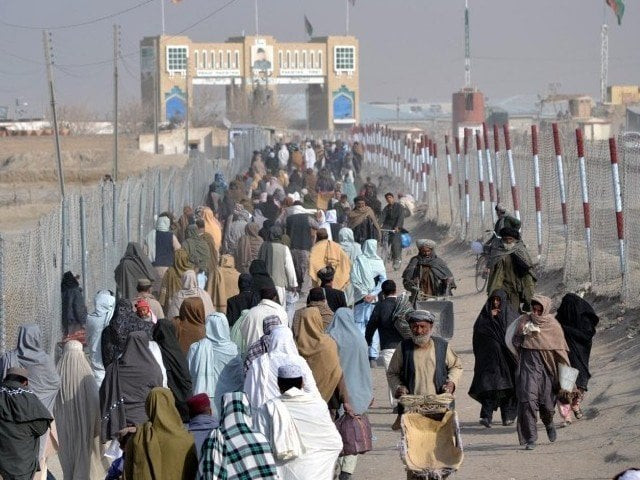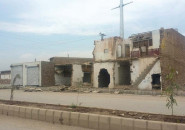Shrinking funds hit Pakistan, says minister
With one human in every 113 affected, forced displacement hits record high.

PHOTO: INP
This was said by Federal Minister of States and Frontier Regions Lt-Gen (retd) Abdul Qadir Baloch on Monday.
He was speaking as chief guest at an event marking the World Refugee Day.
“The issue affects and involves us all, and what it needs is understanding, compassion and a firm resolve, to come together and find real answers for the refugees’ plight,” the minister said.
The UNHCR Representative Indrika Ratwatte paid rich tribute to the resilience of the refugees and the generosity of host communities that provide them with shelter and protection.
“The UNHCR works for a world where every person forced to flee can be protected,” he said.
“The reasons are threefold,” Ratwatte said, while speaking about factors contributing to the rise of forced displacement.
“Lack of lasting solutions to new and protracted situations, increase of new situations causing exponential forced displacement and inequitable responsibility sharing by the international community,” he elaborated.
The UNHCR representative also stressed that the world needed to find new approaches and solutions and demonstrate political will to address the issue of displacement.

The number of forcibly displaced people in 2015 was higher than it had ever been in history, as reported by the UN refugee agency.
The UNHCR’s annual report, Global Trends: Forced Displacement in 2015, released on Monday, states that 65.3 million people are displaced in 2015, compared to 59.5 million just 12 months earlier.
This is the first time that the threshold of 60 million has been crossed, with one human in every 113 affected.
The report indicates that Pakistan, with 1.5 million registered Afghan refugees, remains among the world’s leading refugee-hosting countries.
It further states that 74 per cent of registered Afghan refugees were second or third generation, born and raised in Pakistan.
The report shows that by the end of 2015, 10 countries hosting the largest numbers of refugees were in developing regions.
Turkey remained the largest refugee-hosting country in the world at the end of the year, with 2.5 million refugees in its territory, compared to 1.6 million refugees reported a year ago.
By the end of 2015, the number of refugees in Pakistan increased slightly to 1.6 million, as compared to 1.5 million at the end of 2014 - a rise largely accounted for by natural growth of the refugee communities already present in the country.
Nearly all refugees residing in Pakistan, the second-largest refugee-hosting country, were Afghan, with some having lived there for more than 30 years, the UNHCR’s annual report states.
Globally one in six of the refugees under UNHCR care were from Afghanistan -- 2.7 million people — where almost 1.2 million people were internally displaced.
Children constituted 51 per cent of the world’s refugees according to the report.
In Pakistan, children below the age of 18 constitute 50 per cent of the total refugee population.
In all, 86 per cent of refugees being cared for by the UNHCR in 2015 were in low and middle income countries such as Pakistan.
Syria at 4.9 million, Afghanistan at 2.7 million and Somalia at 1.1 million together accounted for more than half of the refugees under the UNHCR care worldwide.
Published in The Express Tribune, June 21st, 2016.


















COMMENTS
Comments are moderated and generally will be posted if they are on-topic and not abusive.
For more information, please see our Comments FAQ